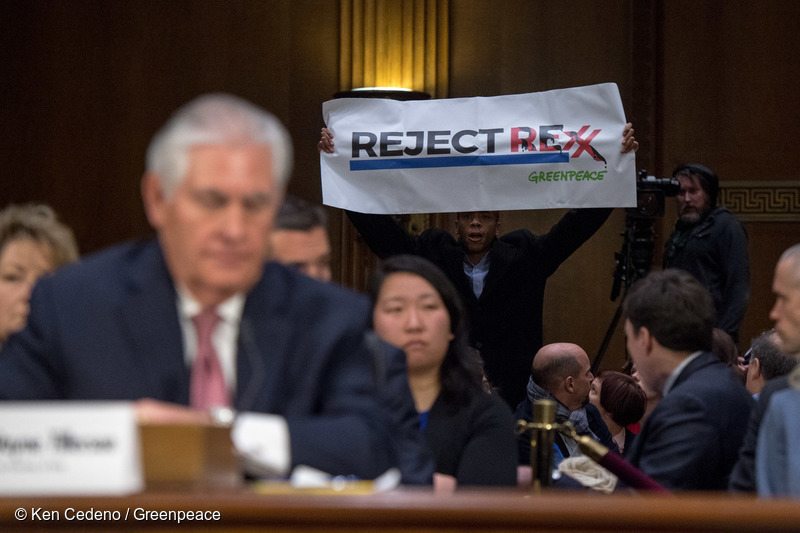Download the Policy Brief.
ExxonMobil stands to benefit from the U.S. State Department’s approval of the Keystone XL pipeline, and consequently Secretary of State Rex Tillerson should recuse himself from the permitting decision.
Summary Findings:
- Secretary of State Rex Tillerson should recuse himself from the decision to approve or reject the Keystone XL pipeline.
- Tillerson’s recent employer, ExxonMobil, is heavily invested in high-cost, environmentally destructive tar sands production that would be served by the pipeline.
- Canadian tar sands’ production is projected to be limited by a lack of pipeline capacity. It trades at a significant discount relative to WTI crude when pipeline capacity is constrained — a problem which Keystone XL was proposed to fix.
- Approval of Keystone XL would increase the value of tar sands oil sold on global markets, and hence the value of ExxonMobil’s tar sands assets.
- As such, ExxonMobil stands to materially benefit from the approval of the pipeline granted by its former CEO Tillerson.
- By handing over U.S. foreign policy to an oil industry executive, Trump has created fertile ground for extensive conflicts of interest.
- Recusal in this case is keeping with the spirit of government ethics laws and Mr. Tillerson’s own stated ethics commitments.
For Further Information:
This Policy Brief is published by Greenpeace USA and Greenpeace Canada. Analysis contributed by Tim Donaghy, Keith Stewart, Jesse Coleman and Naomi Ages. For media inquiries please contact Cassady Craighill ([email protected]). March 2017.



